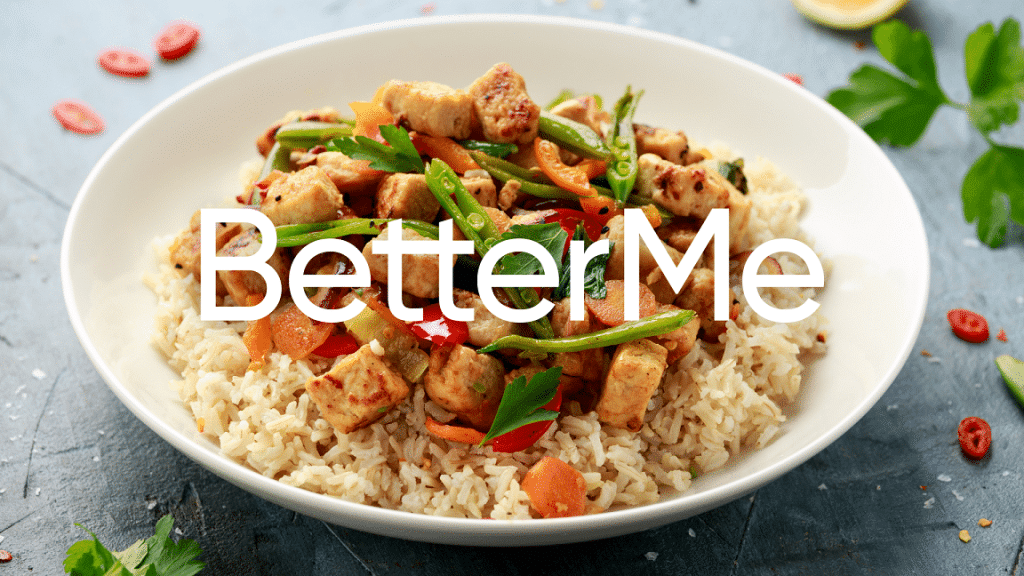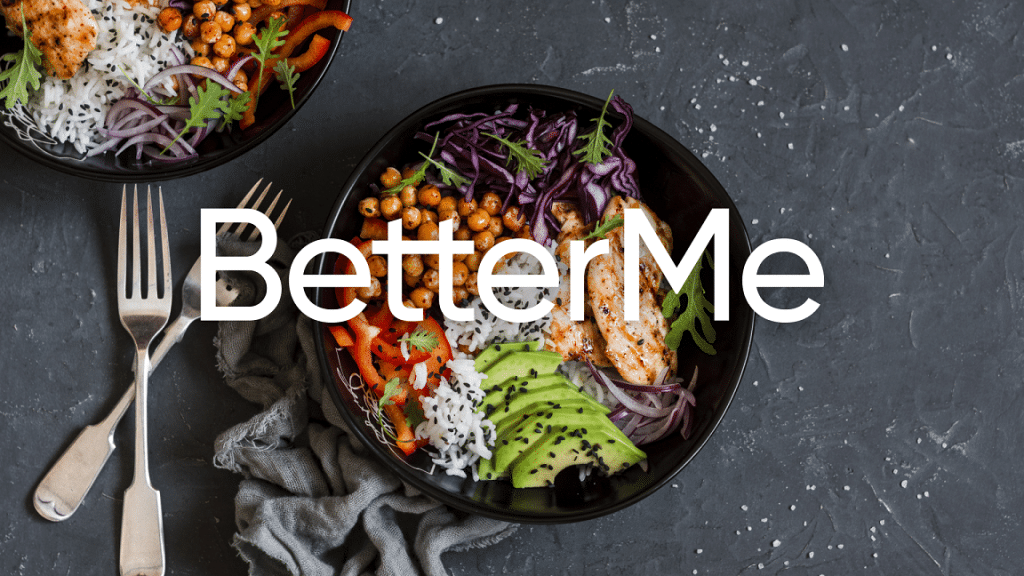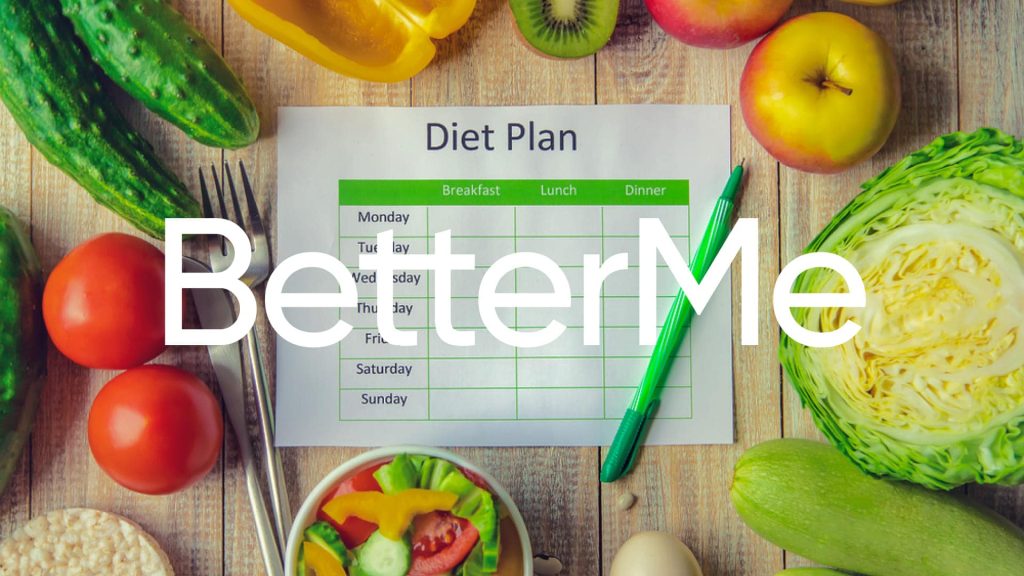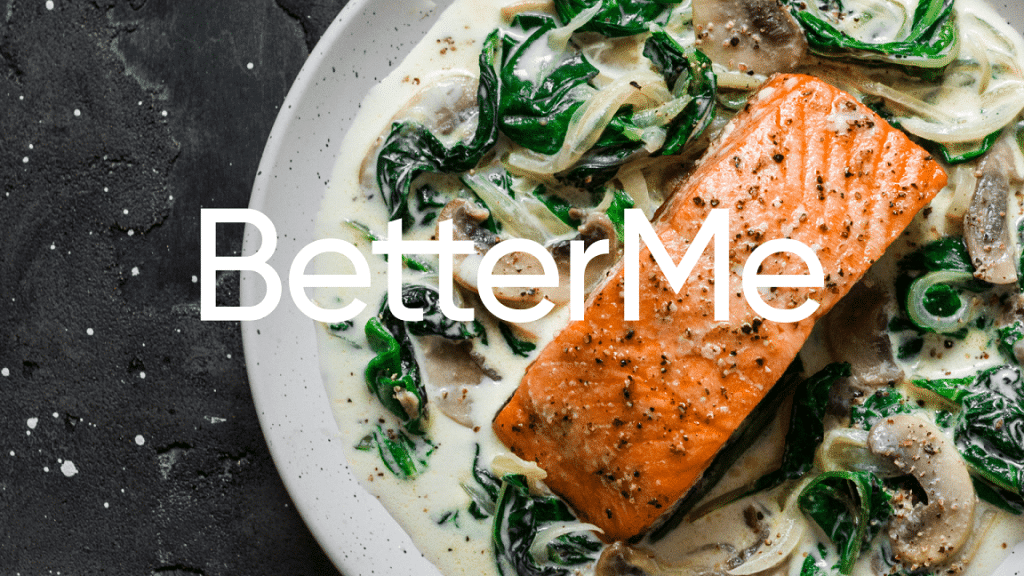If you want to shed some pounds before summer and you like Asian cuisine, then the Japanese diet may be just the right choice for you. Did you know that Japan has one of the world’s lowest obesity rates and one of the world’s highest life expectancy rates?
Get your personalized
meal plan!
Well, they do, and perhaps their secret lies in the food they consume. The Japanese diet may be one of the ways to not only lose weight but to improve life expectancy at the same time. This diet just might help you live longer if you incorporate it into your daily routine. However, short-term dieting may also be beneficial and can help you scale down.
What Is The Japanese Diet?
What is it that makes the Japanese diet so different and helps people live longer? The Japanese diet, called “washoku” in Japanese, focuses on whole foods. It also depends upon eating seasonally for the freshest ingredients (10). Both these features staple a healthy diet regardless of where you live and what your background is.
Japanese eating patterns are characterized by three basic principles:
- Rice as a staple food
- Variety of fish and vegetables
- Moderation in meat intake
What Makes The Japanese Diet Healthy?
Many find that certain aspects of the Japanese diet are exactly what makes it so healthy (5). Firstly, it is a high-fish and seafood intake diet that is rich in Omega-3 fatty acids. This can help lower inflammation as well as cholesterol levels and blood pressure (13). The fish in Japanese cuisine is also very low on the food chain, allowing them to avoid heavy metal contamination found in larger fish like tuna or swordfish.
Where does rice fit into this special diet? Well, rice is an integral part of the Japanese way of life and goes hand-in-hand with their traditional lifestyle. It could be argued that while the amount of rice eaten may not be ideal for weight loss, every culture has its traditions, and rice is a part of Japanese cuisine. While they eat more fish and seafood for protein, rice is still very important to the overall diet.
The Japanese also consume plenty of vegetables, which can reduce inflammation, along with omega-3 consumption and may even improve heart health over time. Fruits are recommended as well, especially antioxidant-rich berries like acai berries or delicious cherries (7).
Read More: Shokuiku Diet: The Japanese Approach To Nutrition
How Does The Traditional Japanese Diet Compare To The Standard American Diet?
Fiber
The average American consumes only around 15 grams of fiber per day (it should be 25-38 grams) (14). Without sufficient dietary fiber intake, your body will have difficulty excreting fecal matter and become constipated. Dietary fiber promotes regular bowel movements. The average Japanese person consumes more than 40 grams of dietary fiber! They consume plenty of fruits, vegetables, bean products, such as tofu and soybeans, barley, seaweed, sweet potatoes, and brown rice.
The body does not digest fiber, so it passes through the digestive tract almost completely intact. This is why a high-fiber diet is necessary to maintain good gastrointestinal function. Fiber helps prevent many diseases, including coronary heart disease and cancer since it absorbs toxins in food and pulls cholesterol away from blood vessels (17). Dietary fiber also helps lower total cholesterol levels (3).
Sodium
The average Japanese person only consumes around 1900mg of sodium a day, and the American diet contains an average of 3600mg. If you chronically consume high levels of salt daily, you run the risk of increasing your blood pressure (15).
High blood pressure is one of the main contributors to cardiovascular disease in America. A healthy blood pressure reading should be below 120/80 (high blood pressure is anything above 140/90). A low-sodium diet will help lower your blood pressure naturally over time (18).
Low Intake Of Meat
Americans eat twice as much meat as Japanese people do. Processed and red meat rich in fat not only increases your saturated fat intake but also increases the risk of certain cancers. Meat contains no dietary fiber and very few vitamins or minerals that are needed for a healthy diet which can’t be obtained elsewhere (16).
Possibly because Japanese people consume less meat than Americans, they have a lower chance of developing cancer, osteoporosis, and coronary heart disease. They also enjoy a longer life expectancy by an average of seven years!
Little Added Sugar
The American diet houses around 22 teaspoons per day; this is more than the recommended amount. Consumption of added sugars, such as honey, corn syrup, cane sugar, etc., can lead to Type 2 Diabetes and obesity because it causes weight gain which can lead to decreased glucose tolerance (4).
If you want to maintain good blood glucose levels, then consuming too many sweets can be dangerous. The Japanese consume little to no added sugars and thus tend to have healthier blood glucose levels than their American counterparts.
Minimal Fat Consumption
Americans love all things fatty! However, a diet rich in certain kinds of fat can cause coronary heart disease and increase your risk of breast cancer. It can also lead to obesity since fat has over twice the number of calories as carbohydrates (19). America’s favorite source of fat is vegetable oils like corn oil, which are found in most processed foods we eat every day. Fats from fish, seeds, nuts, and other plant sources (like avocado and olive oil) tend to be better for heart health.
If you wish to free yourself from all the extra pounds that have been weighing you down for way too long, start using the BetterMe app and overhaul your entire life!
What Do You Eat On The Japanese Diet?
So, what does this special diet consist of? It contains the following foods:
- All types of fish and seafood
- Soy foods including edamame, tofu, miso, soy sauce, tamari, and natto
- Seaweed
- Tempura
- Rice or noodles
- Raw and pickled fruits and vegetables
- Small amounts of red meat, poultry, eggs, and dairy
There are many different Japanese meals you can enjoy when following a traditional Washoku routine.
The first course would usually be soup made from gently boiled soybeans, seaweed, and fish. The second course would be a variety of cooked vegetables served with steamed white rice, accompanied by an optional omelet or pickled plums in the center. Lastly, there might even be another sweet dish served to round off your meal, such as fruit.
What Foods Shouldn’t Be Eaten On The Japanese Diet?
This diet minimizes the following foods:
- Dairy
- Baked goods such as bread, tortillas, and pies
- Processed or sugary foods
- Excess fats, oils, and sauces
Read More: Benefits Of Miso Soup For Weight Loss: Dropping Pounds The Japanese Way
Benefits Of The Japanese Diet
The following are some potential health benefits of this diet:
Weight Loss
The foods eaten in a Japanese diet tend to be lower in calories than those eaten in a typical western diet. This is likely to lead to weight loss. Calorie restriction may also increase longevity by reducing free radical damage and inflammation, although it is important not to restrict too much or you risk nutrient deficiencies, malnutrition, and a slowed metabolism (2).
The Japanese lifestyle does not eschew exercise either. Regular cardio is recommended to reduce body fat and improve heart health (8). It even includes strength training exercises, as there is evidence that these can not only prevent muscle loss but actually encourage muscle growth in older adults.
In addition to the benefits of weight loss from cutting calories, stress reduction from regular exercise offers its own rewards in both mental health and longevity. These combined effects of a healthy diet and regular exercise are well worth pursuing anyone who wants to live as long as possible with good health.
Rich In Nutrients
Japanese diets are rich in antioxidants, omega-3 fatty acids, vitamin C, selenium, and vitamin E. It is one of the healthiest and most nutrient-dense eating patterns on Earth. These nutrients, along with their unique phytonutrients, help protect against chronic diseases such as cardiovascular disease and cancer (1).
Yanking yourself back in shape has never been so easy with our game-changing fitness app! Start transforming your life with BetterMe!
Improved Digestion
The Japanese diet features whole grains like rice and barley which are high in fiber content containing both insoluble and soluble fibers. These fibers help to improve digestion and regularity (17).
Insoluble fiber moves food through your gut and adds bulk to stool, reducing your risk of constipation. Soluble fiber, on the other hand, helps to form a thick gel-like material that slows down your digestion and signals your brain that you’re full.
Since this diet limits animal products it may help those who are lactose intolerant or have trouble digesting meat as well.
As an added benefit for people with IBS (irritable bowel syndrome), the Japanese diet may be very helpful as it has no sugar alcohols, which can cause abdominal pain, cramping, and diarrhea in sensitive individuals.
The bacterial flora of the gut might also change for better if one adopts such a lifestyle. The pickled fruits and vegetables commonly eaten on this diet are a great source of probiotics. These beneficial bacteria promote gut health and may reduce digestive symptoms like gas, bloating, constipation, and diarrhea (11).
Longevity
The Japanese have the highest life expectancy of any country, with men living on average to 81 years old and women living to 87 (12). A large part of this is credited to their diet, which has been found to cut the risk of cancer and cardiovascular disease. In particular, plant-based foods play an important role in Japanese people’s diets. Their consumption habits are thought to be linked to their longevity.
Heart Health
Due to its high fiber content, it helps lower cholesterol levels. The average Japanese person ingests far less meat than Americans and therefore has lower levels of saturated fat, which can lead to a reduced risk for heart disease.
The Japanese diet features a wide variety of seafood that is high in omega-3 fatty acids that can help reduce triglyceride levels. Fish are also high in vitamin D, which may play an important role in regulating blood pressure (6). Not only does seafood provide protein, but it also contains essential nutrients like iodine, iron, zinc, and selenium that are beneficial for metabolism regulation and bone health.
Japanese people tend to eat large amounts of whole grains while avoiding white sugar and processed foods, which is a key factor in lowering the risk of diabetes and heart disease (20). It is believed that the traditional diet with its small amounts of animal protein, added sugars, and fat can lower insulin resistance as well as blood pressure.
The Bottom Line
While the traditional Japanese diet may not be feasible for everyone, it can serve as a model of healthful eating. The benefits of weight loss from cutting calories, stress reduction from regular exercise, and balanced nutrition (rich in nutrients, fiber, and antioxidants) make it one of the healthiest weight loss options out there.
DISCLAIMER:
This article is intended for general informational purposes only and does not address individual circumstances. It is not a substitute for professional advice or help and should not be relied on to make decisions of any kind. Any action you take upon the information presented in this article is strictly at your own risk and responsibility!
SOURCES:
- Antioxidant Phytochemicals for the Prevention and Treatment of Chronic Diseases (2015, ncbi.nlm.nih.gov)
- Caloric Restriction and Chronic Inflammatory Diseases (2013, ncbi.nlm.nih.gov)
- Cholesterol-lowering effects of dietary fiber: a meta-analysis (1999, pubmed.ncbi.nlm.nih.gov)
- Dietary Sugars Intake and Cardiovascular Health | Circulation (2009, ahajournals.org)
- Diets of the World: The Japanese Diet The Japanese diet is the iPod of food, says (2007, webmd.com)
- Does Vitamin D Deficiency Lead to Hypertension? (2017, ncbi.nlm.nih.gov)
- Effect of fruit and vegetable antioxidants on total antioxidant capacity of blood plasma (2016, sciencedirect.com)
- Exercise helps the heart even if it doesn’t cause weight loss (2012, health.harvard.edu)
- Facts about fat – NHS (2020, nhs.uk)
- Japan’s traditional washoku cuisine feeds body and soul (2014, japantimes.co.jp)
- Keeping Your Gut in Check (2017, newsinhealth.nih.gov)
- Life expectancy at birth, male (years) (2019, data.worldbank.org)
- Omega-3 Fatty Acids – Consumer Fact Sheet (2021, ods.od.nih.gov)
- Position of the American Dietetic Association: Health Implications of Dietary Fiber (2008, sciencedirect.com)
- Sodium Intake and Hypertension (2009, ncbi.nlm.nih.gov)
- Staying Healthy What’s the beef with red meat? (2020, health.harvard.edu)
- The health benefits of dietary fiber: beyond the usual suspects of type 2 diabetes, cardiovascular disease and colon cancer (2012, ncbi.nlm.nih.gov)
- Things you need to know about blood pressure and hypertension (2009, ncbi.nlm.nih.gov)
- Trans fats—sources, health risks and alternative approach – A review (2011, ncbi.nlm.nih.gov)
- Whole Grains | The Nutrition Source | Harvard TH Chan School of Public Health (n.d., hsph.harvard.edu)
















